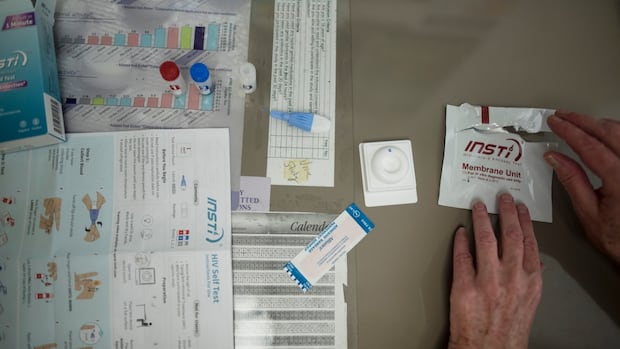As people across Ontario, Quebec and major cities in the U.S. swelter under a June heat wave, medical experts urge people to take precautions in the potentially deadly weather.
Much of eastern Canada is dealing with extreme heat and humidity, say meteorologists who point to how Environment Canada’s heat record for June was broken on Sunday in Toronto. The temperature on Monday was expected to climb to 36 C at Pearson International Airport, with Environment Canada saying hot and humid conditions will likely continue until Wednesday.
In summer 2021 in British Columbia, 619 deaths were attributed to a heat event, according to a B.C. coroner’s report. Many of the people who died had chronic health conditions, especially schizophrenia, depression, substance use disorders, diabetes, heart disease and respiratory disease.
Dr. Edward Xie, an emergency physician at Toronto’s University Health Network, said public health units, doctors and nurses focus on 26 C, because the B.C. event showed the highest risk of death was related to indoor temperatures above that temperature throughout the heat event.
Here’s what Xie and other experts say happens to the body in the heat and what they recommend to stay safe.
Heat-related symptoms to watch for
“We have warm skin, we might look flushed, we may feel that our heart is pounding faster and we’re breathing more to get that blood moving,” Xie said, listing symptoms of heat exhaustion.
Our bodies are very effective at normal human body temperature of around 37 C.
But when the weather is hot, blood vessels expand to carry more blood to try to get rid of the extra heat faster through the skin, Xie said.
Symptoms of heat exhaustion can also include dizziness, headaches, fast breathing and thirst, which can affect anyone. When that happens, the person needs to cool down within 30 minutes.
When temperatures hit historic highs, it can affect every organ in the body as well as mental cognition. But what does that feel like? CBC’s Lauren Pelley visited a lab where it’s being studied to experience what happens when the body overheats.
“The most important thing is to get somewhere cool as quickly as possible,” said Greg Wells, a senior scientist at Toronto’s Hospital for Sick Children and an exercise physiologist.
Tips to prevent overheating
To try to stay cool, Wells and Health Canada also suggest:
- Get out of the sun and head indoors, preferably where there is air conditioning.
- Wear light-coloured clothing.
- Put on a hat.
- Keep the sun off your body.
- Consider getting exercise in the morning or in the evening.
If you’re already overheating, they recommend:
- If there’s no A/C, Wells said to use what’s available, such as towels with cool water on them to help suck some of the heat from your body.
- Stay hydrated to ensure you have enough fluids to sweat and keep the heat coming off the body.
- Take cool showers or baths until you feel refreshed.
What impairs sweat
While it may smell unpleasant, sweating is your body’s friend.
That’s because sweating aims to get heat to dissipate into the environment. And the higher the temperature gets, the more sweating becomes the main way the body cools, Xie said.

Wells said when it is really humid, that makes it even harder because the sweat doesn’t evaporate off your skin as quickly to pull the heat from your body.
Babies, pregnant people and those aged 65 or older aren’t able to produce sweat as effectively.
Xie said some medical conditions also impair the body’s ability to sweat and some medications may make it easier to dehydrate.
“There are many heart medications that allow people to get rid of water in their body,” Xie said. “Well, you can imagine that during a heat wave, they need that extra water to not get dehydrated.”
Those medications include, but are not limited to, antihistamines, anti-inflammatories, heart medications, thyroid medications, ADHD medications and antidepressants.
In heat stroke, the body’s core temperature goes above 40.6 C — a medical emergency that can lead to long-term organ damage and death. Symptoms include rapid breathing, confusion or seizures, and nausea.
“The most important thing is to use yourself as a laboratory,” Wells said. “Pay attention to how you’re feeling. Pay attention to your heart rate, pay attention to how much you’re sweating, stay hydrated.”






